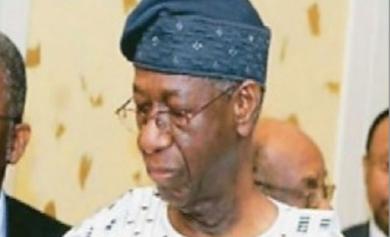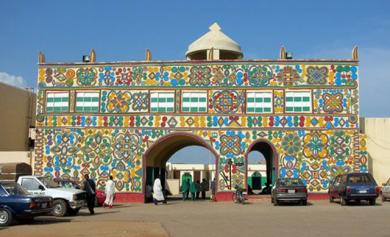
As Nigeria celebrates the Senate President on his 65th birthday, EDEGBE ODEMWINGIE and JONATHAN NDA-ISAIAH report on the strides of the man his kinsmen have come to hail as the Okpokpowulu K’Idoma (Field Marshal or Generalissimo). The PIB and the northern position is also featured.
The President of the Senate of Nigeria and Senator representing Benue South Senatorial District, David Alechenu Bonaventure Mark, is 65 years old today. He was born April 8, 1948.
Many will attest that Mark has confronted the shenanigans typical with Nigerian murky politics with pin point military efficiency. For one, his leadership has brought order to a once tumultuous Senate. He has also been adjudged a crucial stabilising factor between the executive and legislative arms of government. As proof, there has not been a repeat of the executive-legislature conflict that characterized the fourth and fifth sessions of the Senate.
To confirm the leadership toga, albeit locally, Mark is also a confirmed field marshal outside the Senate. His Idoma Kingdom, under the kingship of the Och’Idoma, His Royal Majesty, Agabaidu Elias Ikoyi Obekpa, conferred on him the title of Okpokpowulu K’Idoma (Field Marshal or Generalissimo) on July 26, 2009.
In lofty tributes, former Head of State, retired General Yakubu Gowon, in July 26, 2009, described Mark as “an untiring soldier, a complete gentleman and a friend.”
In a shocking act of accountability (a rarity with his ilk in Nigeria, politics I mean), on January 8, 2008, he had announced that the Senate had returned unspent N7 billion, released to the Upper House on December 31, 2007, to the treasury in line with the provisions of the Fiscal Responsibility Act.
He has guided the Senate to push through a number of pro-poor and people-oriented actions and legislations, including the historic Doctrine of Necessity that produced the acting presidency of the then Vice President, Goodluck Jonathan, with all presidential powers to put an end to the impasse created in the polity by the illness of the then president, Umaru Yar’Adua.
The Man Mark
A recipient of the Grand Commander of the Order of the Niger (GCON) award, Doctor of Engineering of the Nasarawa State University and Doctor of Letters by the National Open University of Nigeria (NOUN), among others, all in recognition of his contributions to scholarship, Mark set up, in 1999, the David Mark Scholarship Scheme (DMSS), which has now become a Foundation where scholarships are awarded yearly to students at all levels. He also donated a Study Centre to NOUN in Oturkpo to enhance the development of education.
He is a member of the People’s Democratic Party (PDP). Prior to his senatorial career, Mark was one time military governor of Niger State.
Born in Otukpo, Mark attended St. Francis Catholic Practising school before attending the Nigerian Military School. He retired as a Brigadier General
Mark was elected to his position as President of the Senate of Nigeria on June 6, 2007. In April 2012, Mark expressed concern for the new wave of terrorism from Islamic sect, Boko Haram that was taking hold on Nigeria; he said that it was turning Nigeria into a laughing stock and that the actions are “inhuman and (do) not enjoy the support of any right-thinking member of the society.” Mark has been actively pleading with the Boko Haram, hoping that they will open up dialogue with the government in the interest of peace.
Mark and his wife, Helen have children. He enjoys golf, tennis, and squash. He is an Idoma Christian and a Catholic.
On Saturday, Mark laid the foundation for the Otukpo township Stadium otherwise called “David Mark Sports Complex” in his home-town Otukpo, promising that when completed, the stadium would be centre of sporting activities in the state and environs.
The proposed stadium being constructed under David Mark Bonaventure Initiative (DMBI), is being financed by friends and admirers of the President of the Senate, Mark’s media office disclosed in a statement.
Laying the foundation stone of the project, Senator Mark urged all stakeholders to exhibit the desired commitment to ensure that the project is completed on schedule.
“Like you all know, I have a great passion for sports. Anything I can do for the development of sports, I will not hesitate to do so. The Otukpo stadium, when completed, will compliment the golf course which is already attracting sports men and women into Otukpo. Hopefully in the next 12 months, God willing, the stadium should be ready for sports activities”, he told the gathering.
PIB: A Case For Oil Exploration In The North
The freshly presented Petroleum Industry Bill (PIB) put mildly, has suffered a healthy dose of delays since its introduction. The seventh legislative session undoubtedly chases history if it can see through the successful passage of the huge anticipated Bill, many will agree.
The ambitious 223-page PIB (2012) which seeks to redirect Nigeria’s oil sector, has been years in the making and several other versions have been inconclusively debated by the National Assembly.
Federal lawmakers mainly of northern extraction, insist on the creation of a “stand alone” oil exploration agency to pursue exploration and production of oil and gas in the frontier of Chad Basin, Dahomey basin, Imo basin, Benue trough and Sokoto basin.
A fortnight ago, the Senate President, while inaugurating the PIB committee, said one of the things which the Bill will seek is to find and explore oil in the Chad Basin and in northern Nigeria. According to him, there is no reason why oil cannot be found in the north. In his words, “we want to explore for oil in the north and in other areas apart from the Niger Delta. There is no reason why we can’t find oil in the north’’.
In 2011, the federal government, through the Nigerian National Petroleum Corporation (NNPC), intensified efforts towards oil exploration, targeting Chad Basin in Borno and other northern parts of the country - Kukawa in Borno State was the first point of call. The NNPC, through its subsidiary, Integrated Data Services Limited, in collaboration with China National Petroleum Company, had deployed the latest technology in the hydrocarbon business to locate the possible areas where there is sufficient hydrocarbon in the Nigerian portion of the Chad Basin. The Chinese company is said to have found oil on the other side of the basin outside Nigeria.
According to monitored reports, the former Group Managing Director, NNPC, Abubakar Yar’Adua, said that the corporation has invested about $500 million (N58 billion) in the Chad basin oil search and the geologists declared that though about 240 billion barrels of crude have been discovered in Africa, over 150 billion barrels are yet to be discovered in the continent, making the Chad search likely for commercial discovery.
During a seminar in Lagos years back, President, Nigerian Association of Petroleum Explorationists (NAPE), Kingsley Ojoh, declared that the Red sea, like the northern Nigeria, “has once been written off in terms of oil exploration and discovery. It was written in black and white by some western explorationists that that region could not have oil deposits but with the aid of modern technology, it is today one of the finest region where oil is being explored in commercial quantity.”
Although the NAPE boss confirmed that the, “geology and other exploration activities in the Niger Delta region of Nigeria have been proved by technology to be superior,” he declared that the north “cannot be ruled out in terms of commercial discovery.”
When exploration at the Chad basin started in 1976, according to Ojoh, “only 2D seismic was used but we do not do anything (exploration) in the Niger Delta without 3D seismic. With 3D or any other advance technology, it is likely that major discovery can be made.”
Disclosing that there are three prospective sub-basins-Gubio, Maiduguri and Baga lake, in the Chad basin, he stated that “any find in any of these sub-basins would be named after them.”
However, the northern socio-cultural organisation, Arewa Consultative Forum (ACF), expressed concern over the federal government’s attitude to oil exploration in the geo-political north and urged it to expedite action on the exploration process.
There have been reports of oil find in Sokoto and Kogi states in commercial quantities. The Sokoto state government, according to reports, are imploring the authorities of Niger Republic to assist it in the exploration of the oil deposits. In a communiqué signed by its spokesman, Anthony Sani, the ACF “regretted that oil exploration proceeds at snail speed in northern Nigeria.”
“In view of recent discoveries of crude oil in areas of similar geological character with northern Nigeria, the meeting reiterates its call on the federal government to expedite action on oil exploration,” the communiqué read.
Responding, the GMD, NNPC, Andrew Yakubu, noted that, due to the high technology employed for the exploration, the area was divided into four phases and that work is currently ongoing on the fifth phase. He further added that three major sub-basins in the Lake Chad area, namely Biu, Maiduguri and Barga had been identified and marked as low-risk while work is currently going on in that area.
He pointed out that lack of security and adequate funding are the major challenges being faced in the speedy execution of the project.
Senate Joint Committees on Petroleum Resources Upstream; Downstream; Gas and Judiciary, Human Rights and Legal Matters are to carry out a Public Hearing on the PIB and report to Senate at plenary in six weeks. The Joint Committees is chaired by Senator Emmanuel Paulker (Upstream).




